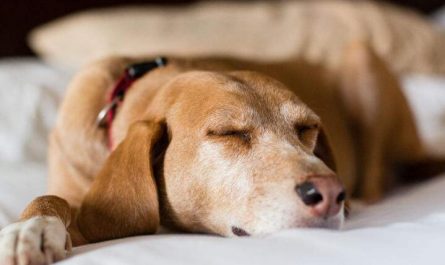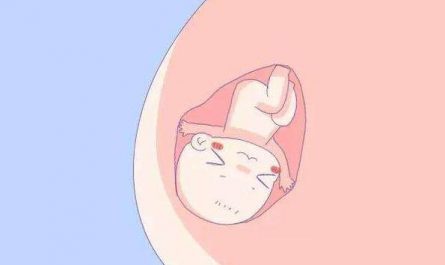Causes of depression in dogs
Long-term confinement or long-term home alone
Animal behavior experts pointed out that long-term imprisonment of animals will induce mental illness. There are 80 million imprisoned animals in the world who behave strangely and have the habit of repetitive activities. Dogs are social animals and require a lot of exercise time every day. Once they are closed for a long period of time, they are bound to cause serious harm to the dog in character and spirit. Many families have very little time to accompany the dog or even walk the dog due to the long working hours of the owner. This requires special care. The biggest suggestion is to spare more time to accompany them. (We do not support caged dogs, but we must not raise them in a free manner. The chances of loss and accidents are too great.)
New pets in the home may be left out
When you want to join a new partner in your family, are you too eager? Make the original baby feel left out and no longer be cared for and loved? Dogs have a sense of sovereignty and will dominate the territory. New dogs enter the family. The original dog will feel invaded, and even feel that the owner no longer loves it, which can easily lead to dog fights or mental illness. The new dog should not be taken home immediately. The owner should create conditions for the two dogs to get in touch with each other in an unfamiliar environment. After returning, the owner can effectively avoid this problem by giving the two dogs the same status. In addition, when a baby is born in the family, the owner will be more or less distracted. At this time, we should also communicate with the dog enough, introduce the baby to the dog, and let the dog know that this is a part of the family. It is not easy to cause pet psychological problems.
Adopted dogs encounter retirement
A large part of patients with depression or other mental illnesses are stray animals that have been retired. Since most of the stray animals are abandoned or abused, if they have been strayed and suffered, they are retired by their owners. Retirement is very traumatic for pets, and once they suffer from depression, their personality changes are difficult to adopt. Therefore, you must carefully consider it before adoption. For some people, they may be pets raised on a whim, but for them, the owner is the world.
Pet itself
Different pets may have very different causes of depression. If the pets at home are too courageous and will be afraid of seeing any unfamiliar people or things for a long time, such pets are also more prone to depression; if the pet itself is not healthy enough, lacks some trace elements, or suffers from other bodies for a long time Illness and physical pain can easily lead to psychological depression.
external environment
(1) Sudden changes in the living environment If the living environment changes suddenly, such as being sent to the owner’s friend’s house for foster care, or the owner’s house relocating to a new house, pets will generally show a little uncomfortable and feel at a loss.
(2) The joining of new members If another pet or friend comes to the family, or a newborn baby appears, they will feel left out and look depressed.
(3) Separating small animals such as cats, dogs, rabbits, birds and turtles from their pet owners will feel very upset, nervous or even depressed when the owner leaves the house without taking them out.
Pet owner
The attitude of pet owners towards pets is a critical factor.
(1) If the pet owner goes out early and returns late every day, he will not have time to spend time with the little guy or take him out for a walk before the “May Day” and “October” holidays. This is often ignored. And pets that cannot leave the house are prone to depression and anxiety, and even self-mutilate to vent their boredom.
(2) If the family atmosphere of the pet owner is relatively tense, and family wars erupt from time to time, the pet’s life will naturally not be easy. In this environment, pets are prone to fear and anxiety, and depression will develop over time.
Symptoms of depression in dogs
First: It is difficult for a dog with depression to be excited, and no matter how amused or attracted by the parents, it is still listless and dull.
Second: The dog loses interest in the food and toys that he originally liked very much, and the exercise he usually likes to do will stop.
Third: The amount of drinking water has been significantly reduced, much lower than before.
Fourth: Abnormal hair loss, a lot of hair loss when the dog is gently combed.
Fifth: Dogs suffering from depression will become very autistic, unwilling to communicate with their parents or other dogs, and prefer to be alone.
Sixth: Pet dogs will become lazy, except for necessary physical activities, they will no longer want to go out of their nest or home.
Seventh: Appetite decreased significantly, food intake decreased, and weight decreased.
Eighth: The dog will become lethargic, it can go to bed from morning to night, if the parent asks it to get up, it will definitely offend it.
Ninth: A depressed dog is slow, and you will find that it always looks slow and weak when doing anything.
Tenth: Depressed dogs will be aggressive, because violent behavior is one of the typical manifestations of depression.
Eleventh: Depressed dogs are more prone to anger, often irritated by trivial things, and it is difficult to calm down in a short period of time.
Twelfth: Dogs will become timid, easily nervous, and respond violently to external environmental stimuli.






